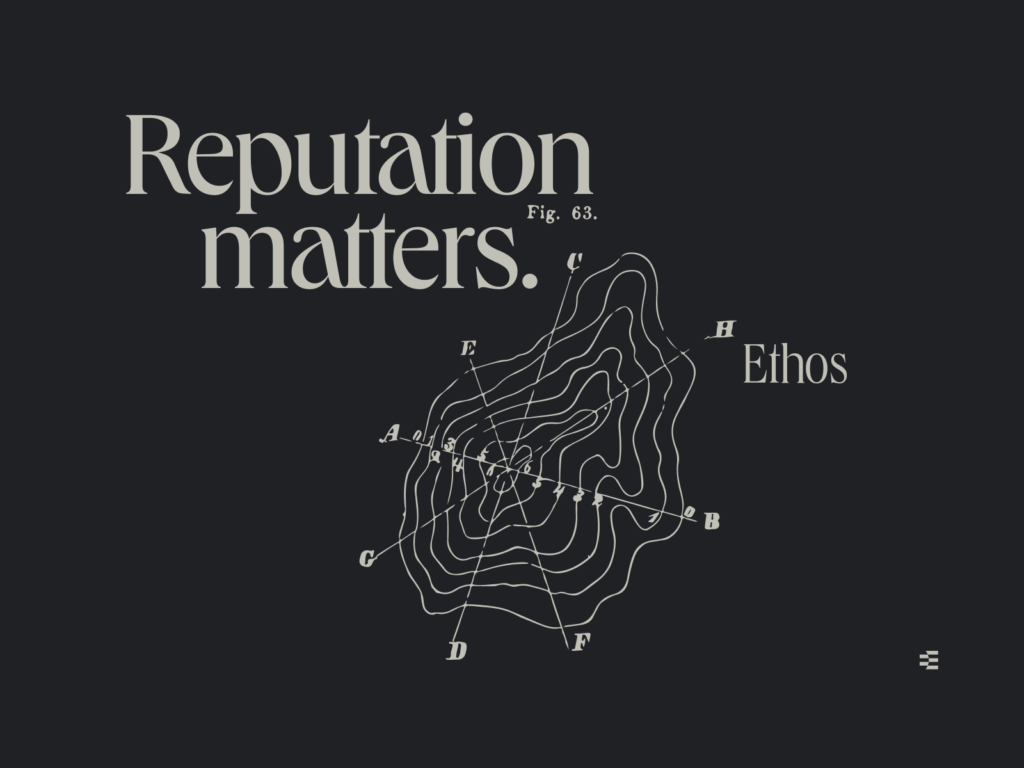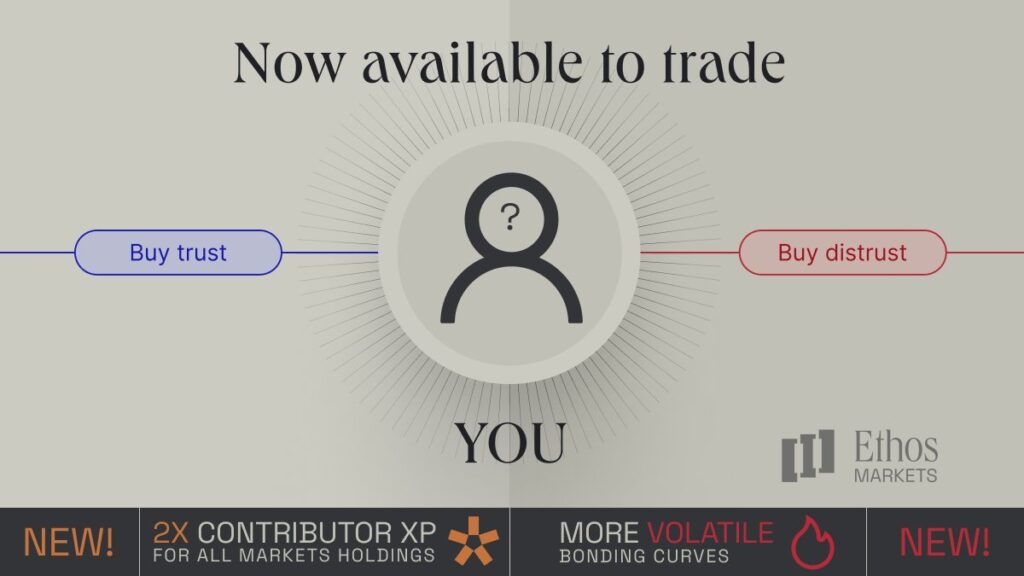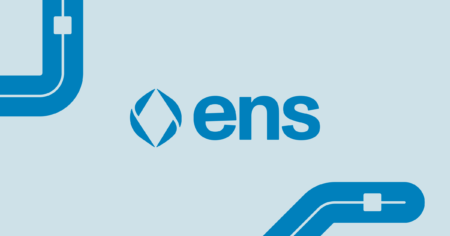For as long as Web3 has been around, a wide variety of folks have been participating in the space. One major struggle everyone discovers early on when they arrive is that it’s difficult to know who your friends are. Plenty of people are opportunistic, and often, it’s hard to realize that something has gone astray until it’s too late.
A new onchain product, Ethos, looks to help solve this issue by providing reputation scores for folks on the blockchain. I had an opportunity recently to speak with the founder of Ethos, Serpin Taxt, about the product and how being able to showcase reputation onchain can help make Web3 easier to navigate in the future.
Building Ethos: Serpin’s Journey
DepressiveHacks (DH): Let’s start with a bit of background. What brought you into Web3 and how did you end up founding Ethos? Can you also break down what Ethos is, in your eyes?
Serpin Taxt (ST): I’ve been in crypto for a very long time, appreciating the tech but never as an investor. It wasn’t until the last cycle that everyone was sitting at home where I found an opportunity to trade. I had some success with those trades and turned that into a hedge fund called 0x5f Capital.
During my time of running 0x5f Capital, I really became enamored with the idea of Friend.tech. It was super interesting – tying the idea of who you are on Twitter to a wallet and those wallet’s actions was something we’ve never seen before. It showed that you could actually tie words with actions, something that was sorely missing onchain.
Ethos does exactly that — it’s an on-chain, decentralized, censorship-resistant way to measure someone’s credibility. It’s driven by peer-to-peer feedback, an element of data we’ve been completely missing in Web3.
DH: How do you see Ethos playing a role in helping people to navigate Web3 more effectively?
ST: It should help in every facet- from how you interpret what someone says on Twitter to how you interact and engage with someone during an OTC deal, every interaction in crypto is financialized. This means trust is the MOST valuable asset and will become the foundation of how everyone evaluates interactions with others.

Soon, everyone will look to Ethos before any decision they make in web3- supporting projects, buying because an influencer showed interest, or joining and taking part in a community
DH: Can you break down the mechanics a bit? There are reviews, as well as vouches. What is the difference, and how do each contribute to a user’s score?
ST: Reviews are qualitative feedback provided by users who’ve interacted directly with someone. They can be positive, negative, or neutral, and each review impacts a user’s credibility score. Positive reviews boost credibility, negative reviews reduce it, and neutral reviews still provide valuable context. These reviews represent the community’s collective judgment and help build a nuanced picture of reputation.
Vouches are different.. they’re quantitative and onchain. When you vouch for someone, you’re putting ETH directly behind your endorsement, creating a tangible signal of trust. Vouches aren’t just empty words; they’re backed by real economic commitment. Because of this, they carry significant weight in determining someone’s trustworthiness.
DH: Users of Ethos can review not only Ethos participants, but anyone with an account on X. Why do you feel it was important to include everyone, and do you see potential to expand this to other Web2 social platforms in the future?
ST: This is how all review sites work, you can review any restaurant.. Any business.. Any employer.. It needs to be open so that the most amount of information is available to everyone.
And yes, absolutely – the system is designed to support this well. Right now you can only target eth addresses and eth profiles, but in the future you could imagine being able to target basically anything- discord accounts, linkedin accounts, websites, or even restaurants if you really want to.
Speculating on Reputation
DH: What are Ethos Markets? Why add a way to trade the credibility of users?
ST: Ethos markets are a way to speculatively trade on someone’s reputation. Ethos.network represents the ideological approach to this, but markets give us the ability for people to speculate on reputation.. If they think it’s going up or going down. It does not currently impact the credibility of users, and stands alone as a separate measurement.

This is an evolution of prediction markets, where we believe that price will be the ultimate way to tell credibility (primarily among notable people). It’s still early though, and this is still a hypothesis.
DH: Can you walk us through slashes? How do they work? What role do they play in helping to maintain a fair ranking system?
ST: Slashes are Ethos’ way of ensuring accountability. Slashes happen when the community identifies and flags clear instances of wrongdoing or harmful behavior. This mechanism incentivizes people to be careful about who they vouch for, making sure trust signals on Ethos genuinely reflect credibility rather than popularity or hype.
In other words, slashes act as a crucial balancing force. They keep the system fair by penalizing blind endorsements and preventing manipulation, helping ensure rankings reflect true community trustworthiness rather than just financial backing or popularity.
Expanding Across Web3
DH: Ethos scores, if you download the browser extension, are viewable both on X and Kaito. How do you see Ethos integration with other apps that are used in Web3 helping to expand the mission of the platform?
ST: Ethos will integrate on every surface area that users use today in web3, and the chrome extension makes that easy. You can see we’ve recently shipped our integration to OpenSea to help traders get better signal when buying NFTs. Bringing ethos scores everywhere is a huge part of our overall strategy.
DH: How do you see Ethos enabling Web3 to start rewarding good actors and participants in the space over bad actors, who have historically run rampant in the space?
ST: Ethos score will be everything. If everyone is evaluating other people and what they say or do based on community consensus about how trustworthy or not that person is, then Ethos helps everyone. It starts with ensuring bad actors have an uphill battle, and over time transitions to ensuring we are rewarding good actors with those same dollars.
The Road Ahead
DH: Where do you see Ethos going between now and the end of the year? Anything exciting that you can share with us that’s coming up?
ST: Ethos strategy has a few parts that we’re highlighting right now:
- Bring ethos scores to more surface areas you work in every day
- Ensure ethos can enable more trustful interactions through (upcoming products we build)
- Make the ethos score valuable to you
Lots more to come on each of those. Just remember, we’re only 100 days into Ethos 🙂
DH: Finally, what excites you about Web3 going forward? Do you have any thoughts on the direction of the space in the next 12-18 months or beyond?
ST: The amount of tech improvement, UI/UX improvement, $$$ improvement that has happened in the last 24 months cannot be understated. We can finally build the apps we want to, because of all the innovation here. Be patient, because there has never been a better time to build REAL apps




